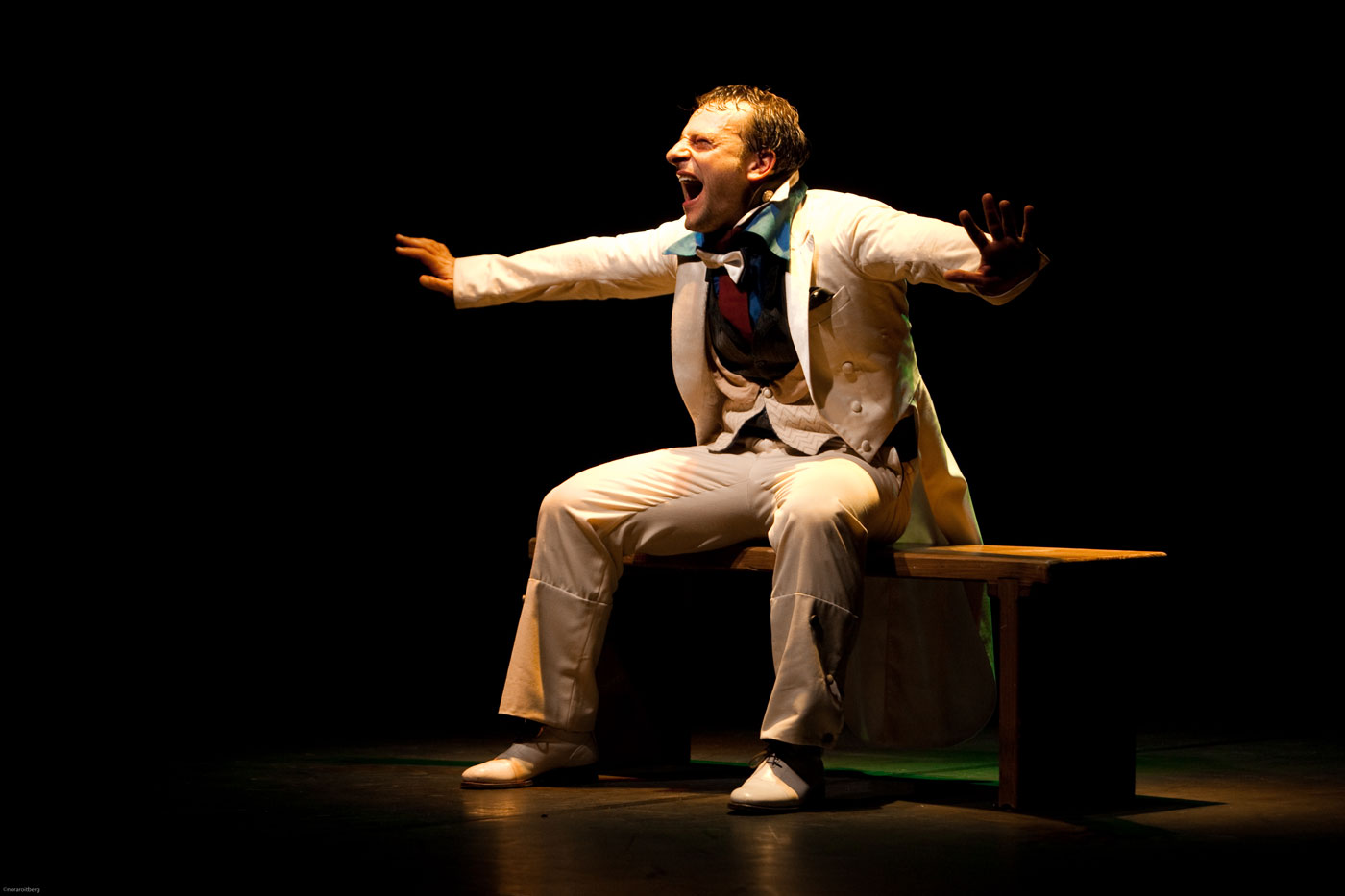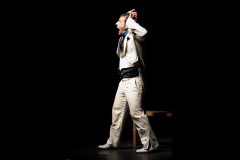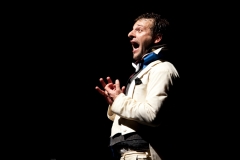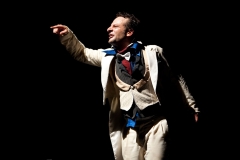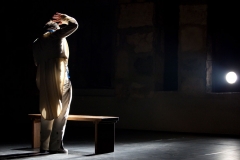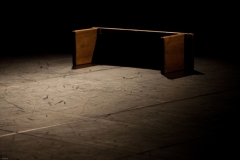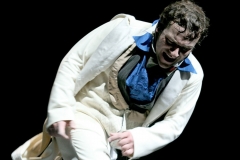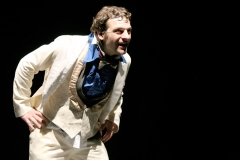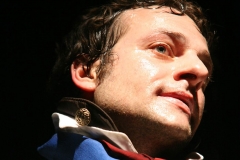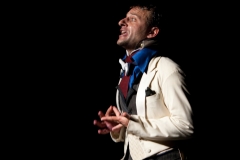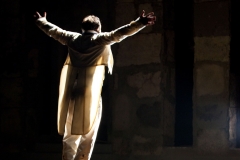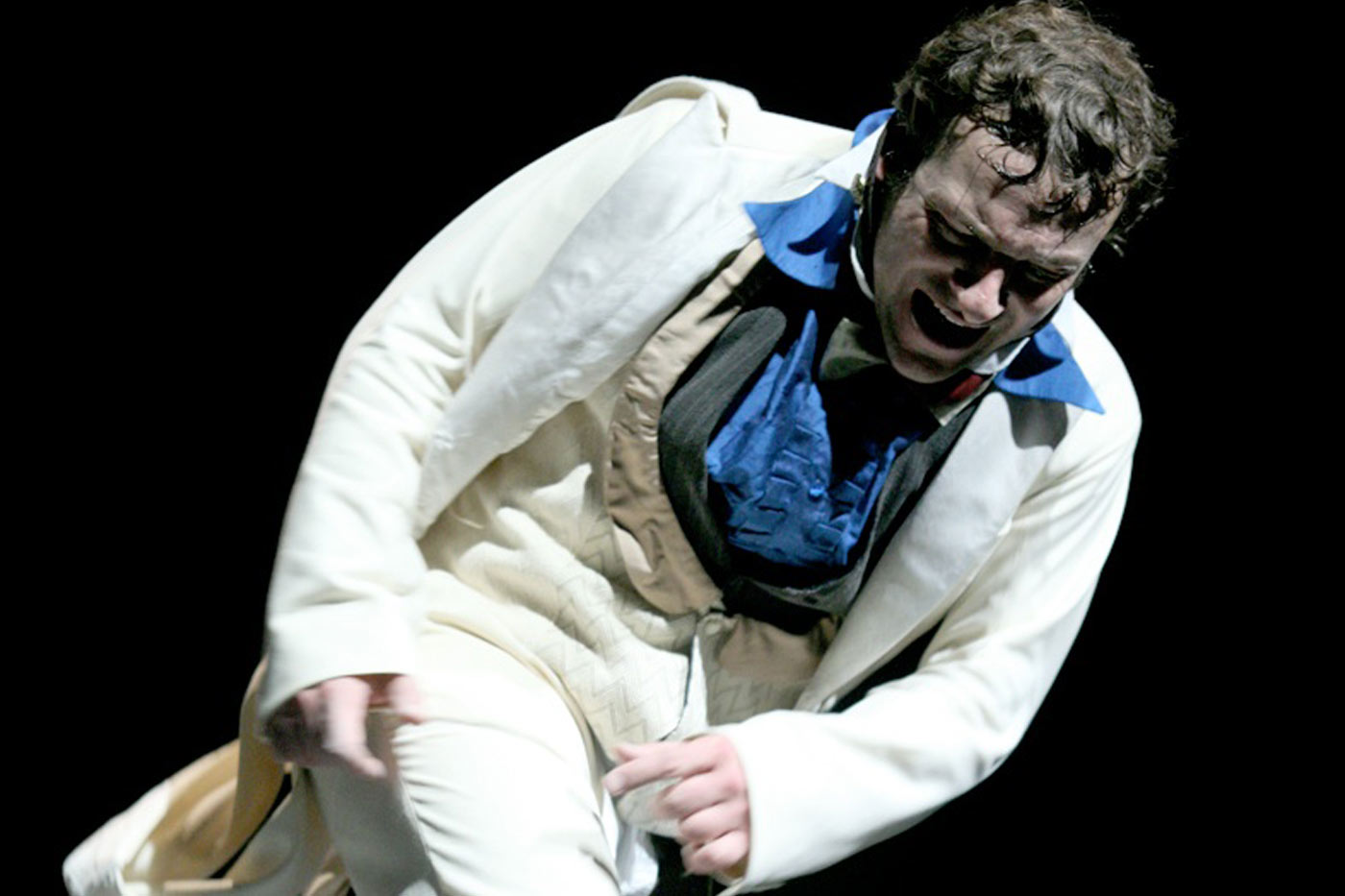
Fragile show
with debt and gratitude to “Il soccombente” of T. Bernhard
dramaturgy and direction FrancescaMacrì and Andrea Trapani
with Andrea Trapani
stage costumes Isabella Faggiano
stage lighting designer Mirco Maria Coletti
production year 2009
“Glenn and ruthlessness,
Glenn and loneliness,
Glenn and Bach,
Glenn and the Goldberg variations,
Glenn in his office in the middle of the woods,
his hatred for people,
his hatred for music,
his hatred for people who love music,
Glenn and simplicity,
I thought ”
FRAGILE SHOW concludes our personal dramaturgical and scenic research on the topic of ineptitude.
A trilogy emerged more and more not as a path in search of questions and conclusions, but as the attempt to find, learn and support the rhythm of a breath, the breath of those who always feel on this side, of those who can’t find their way and yet desperately want it.
FRAGILE SHOW was born from this need and from the passionate, constant and carnivorous reading of Thomas Bernhard. An operation that meant for us the reworking of a commotion and the creation of a dramatic and scenic journey which, on one hand, intimately feels the debt and gratitude to Bernhard, on the other hand, immediately felt, the urgency to get away from it and to walk with its own legs.
So, no more Austria, no more Vienna. The icy, almost frozen, air of the Bernhard’s pages brought us back once again to Florence. Beautiful Florence, with a rare beauty, but resistant to the game and naturally slave of competition. Florence that loves to be looked at, but it never re-looks, if it could do it, it would hit from behind all those who would like to possess it. Florence that too many times has left you speechless, with a blasphemy in your throat, to smell elegance and poetry. In Florence, there is not a single word that is said randomly: everything has a meaning. Where glances are slaps, words are no different. You get into a fight.
Our Mastiff, new Werthaimer, piano player, grew up in the icy gold of this old-fashioned city.
FRAGILE SHOW starts right where Thomas Bernhard’s pages end. In the grip of a feverish excitement, Mastiff-Werthaimer decides to organize a party with his old conservatory classmates, the one that most trivially and commonly would been defined: a party of artists. Sitting on a bench, at the edges of the party as at the edges of life, Mastino observes, reasons, tears himself apart. He smells everything around him. The noises, the amplified voices blend, perhaps monstrously, with laughter, excited shouts, useless chatter. Over a long, very long night, the faces of his former classmates curiously take a grotesque, estranged and alienating shape, from time to time they look at “the man on the bench” as an oddity, an aberration.
